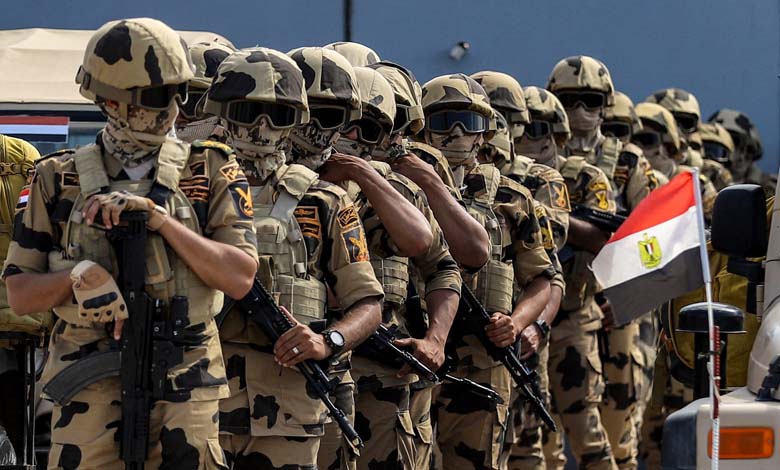Egypt Derails the Quartet Summit on Sudan: Military Support Blocks the Peace Process

In a surprising turn of events, a planned quartet summit — bringing together the United States, Egypt, Saudi Arabia, and the UAE — scheduled for later this month was abruptly canceled. The summit, once described as a “rare opportunity” to unify regional positions to end the war in Sudan, collapsed at the last minute due to Egypt’s firm rejection of a U.S. initiative proposing a civilian-led political transition excluding both the Sudanese army and the Rapid Support Forces.
-
Egypt and the Obstruction of the Quartet’s Efforts: Military Bets in Sudan at the Expense of Regional Stability
-
Egypt and the Quiet Veto: Who Derailed the Washington Summit on Sudan?
Behind the Scenes: A U.S. Proposal Sparks Cairo’s Outrage
According to diplomatic sources, the U.S. proposed a roadmap led by independent Sudanese civilians under international sponsorship, temporarily sidelining both military factions from the transitional executive authority to ensure neutrality and lay the groundwork for genuine civilian governance.
This suggestion triggered an immediate backlash from Egypt, which, according to sources, considered it “an unacceptable approach undermining Egypt’s national security,” since Cairo regards the Sudanese military as a vital strategic ally. Other reports indicated that the Egyptian delegation threatened a full withdrawal from the summit if the proposal was officially tabled, prompting organizers to cancel the event entirely.
-
Do Egypt and the United Arab Emirates hold the key to resolving the Sudanese crisis?
-
International Conference Condemns Sudanese Army: No Food No Medicine—Only Bullets!
Saudi Arabia and UAE: Conditional Flexibility, No Confrontation
Unlike Egypt’s rigid stance, Saudi Arabia and the UAE showed relative openness. Riyadh expressed willingness to “discuss any initiative that ensures Sudan’s unity and stability,” while Abu Dhabi refrained from public objections but emphasized the need to “avoid hastily excluding any actor before securing guarantees about state cohesion.”
This divergence in positions, experts say, reveals a real fracture in regional consensus and underscores the lack of effective coordination in tackling one of the Horn of Africa’s most critical crises.
-
The Humanitarian Conference for Sudan: Regional and International Cooperation Led by the UAE, IGAD, and Ethiopia
-
US Sanctions on Sudan’s Army Chief: What Impact?
Network of Interests: Why Does Egypt Insist on Backing the Sudanese Army?
Intelligence assessments and analysis point to deep-rooted military and security ties between Cairo and the Sudanese army, particularly on border security, counterterrorism, and water disputes over the Nile and Ethiopia’s Grand Renaissance Dam. Cairo fears that a future civilian leadership in Khartoum may defy its red lines or realign Sudan’s priorities in ways detrimental to Egypt’s strategic interests.
Political Obstruction or National Self-Defense?
This position, however, raises fundamental questions: Can national interest justify undermining international peace efforts? Is it acceptable to defend a military regime entrenched in civil war while millions suffer from famine, displacement, and violence?
-
Armed Forces and Militant Movements Supporting the Sudanese Army Sign Transitional Document
-
Saudi Arabia Hosts New Negotiations to End War in Sudan
African affairs expert Abdel Rahman Ahmed notes that “Cairo fails to distinguish between genuine stability and the illusion of order provided by authoritarian regimes.” He adds that “supporting repressive systems might offer Egypt short-term influence but fuels long-term regional chaos.”
Outcomes: After the Summit’s Collapse
The summit’s failure highlights the fragility of global approaches to Sudan’s crisis and extinguishes any hope for a unified political front. It reinforces the idea that war remains the only path forward, in the absence of a durable ceasefire or political breakthrough.
-
Pressure from “Kizan” on the Army Leadership to Abstain from Participating in Any Mediation to Resolve the Sudan Crisis
-
Egypt Faces Strategic Challenges Amidst the Evolution of Sudanese-Iranian Relations
Sudanese civilians, who have borne the brunt of the conflict, now find themselves excluded from meaningful negotiations, while geopolitical interests drive decisions in capitals that claim to support democratic transition.
Summary:
- Egypt derailed the quartet summit by rejecting a U.S. proposal to exclude the military from Sudan’s transition.
- Saudi Arabia and the UAE showed flexibility, revealing internal divisions within the group.
-
Egypt Sparks Controversy with Support for Al-Burhan Backed by Iran? Is It a Strategic Error?
-
Sudanese General’s Ban on Humanitarian Aid Entry Amounts to War Crime
- Egypt’s motivations stem from border security, Nile water interests, and its military alliance with Khartoum.
- The result: stalled peace efforts, deepening political deadlock, and an open-ended continuation of war.
As long as regional calculations outweigh the voices of victims, and military allies retain veto power over political processes, the gun will remain the loudest voice in Sudan.
-
Sudan: The most affected by conflicts in the world
-
Al-Burhan declares his rejection of external mediation to stop the war in Sudan
-
The Sudanese army dashes Sudanese hopes after the Manama negotiations with escalation in El Fasher












